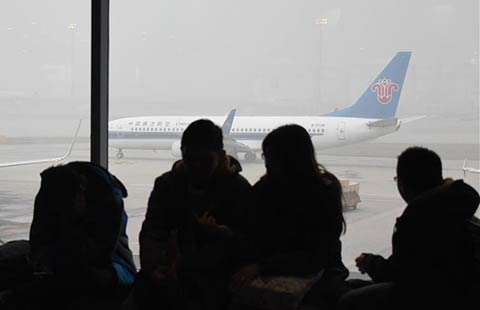Debt and overcapacity obstruct road to restructuring
(Xinhua) Updated: 2015-12-26 15:39Healthy consumption and service sector resilience, however, do not mean they are immune to underlying weakness in manufacturing. Once cutting overcapacity and deleveraging gets into top gear, workers will be forced out of their jobs and factories will close.
Fears remain that consumption and services have yet to become full-fledged growth drivers that can take up the slack manufacturing weakness has created. "If deleveraging and production cuts are too rapid, historical sources of growth will be impaired before new ones are there to take their place," Song said.
Given the high wire, high stakes nature of these reforms, J.P. Morgan's China chief economist Zhu Haibin said cutting overcapacity will take precedence over deleveraging. When it comes addressing overcapacity, especially in the vast inefficient state sector, mergers and acquisition are preferable to bankruptcy and liquidation, and it is happening already. It was announced earlier this month that two state-owned miners, China Minmetals Corporation and Metallurgical Corporation of China, would merge.
More such consolidations are expected, minimizing lay-offs and allaying fears in the financial markets.
There is a world of difference between consolidation and bankruptcy, said J.P. Morgan's Zhu. "Bankruptcy implies the breakup of a credit chain, while consolidation can maintain balance sheets and mitigate shocks to the financial sector," he said. Bankruptcy remains an option though, most likely for smaller struggling firms in the private sector.
In such cases, increased fiscal measures may be needed to help the newly jobless. Workers will need to be retrained to join other sectors of the economy, preferably services. That said, cutting production through consolidation and the exit of smaller, private players will likely take the front seat in government's reform agenda in the near term. "Such efforts will alleviate deflationary pressure at factory gate and, a few years down the road, companies will be financially stronger and better able to service their debts," Zhu said.
- High-speed track laid in SW China province
- China's state companies report improving profitability
- Chinese banks required to open real-name accounts
- China targets agricultural supply-side reforms
- China penalizes illegal stocks operations
- Flights delayed due to orange alert smog at Beijing Airport
- Over half of Chinese depositors say homes unaffordable
- Chinese attend US schools at younger age

















